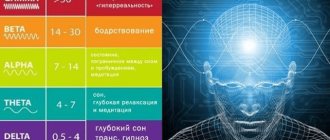Self-knowledge
The process of knowing yourself is called self-knowledge. It is formed throughout life, transforming depending on circumstances. A person’s self-knowledge is influenced by various factors, such as a person’s social status, his social roles, character and temperament, creative and physical abilities, and much more.
Personality formation occurs throughout life. A person is born, begins to explore the outside world and comes to realize himself as a separate person. In infancy, the child becomes aware of and accepts himself through his mother. Subsequently, he begins to understand that he is a separate person from her, begins to learn to accept and study himself, his body, behavior, and the reaction of others to him.
Psychologists argue that the influence of various factors on the process of self-knowledge is irreversible. Therefore, the more positive examples a child sees in childhood, the more thorough the process of self-knowledge will take place in his life.
Psychological dependence on various circumstances may also be associated with some difficulties in childhood.
With the process of personality formation, a person begins to understand what surrounds him, what reality he is in, how society influences him and how he himself influences social processes.
Techniques: we understand in practice
We examined the theoretical aspects, the structure of self-knowledge. Now let's look at the specific techniques used for this.
Journaling
First of all, it helps to get rid of excess negativity.
When a person writes down what happened during the day, it is as if he is cleansing himself, washing away unnecessary dirt.
This helps you calm down, return to your true self, and stabilize a positive attitude. Keeping a diary allows you to better analyze what is happening. In the fast pace of modern life, it often happens that you do not have time to think about what is happening. At home, in a calm environment, writing everything down, and at the same time thinking about it. As you fill out your diary, look at how your day started.
Think about it, is this the beginning of the day you dream about?
This is another item on the list of actions that lead to awareness. Keeping a diary will help you track your ups and downs, which is also very important for development.
We know from history that many successful people kept diaries.
Psychological tests
Simple tests will help you better understand your emotional state and evaluate your actions. By giving clear answers, at the end of the test you will receive a finished result, which will display a specific aspect of your personality. There are many tests for self-knowledge, thanks to which it is easy to understand many things. They will help you see the signals of the subconscious, better understand your character, and determine which activities you should give preference to.
You can go further and study psychology.
This will help you learn to understand yourself better, which will contribute to constructive relationships with others.
Yoga
Helps you find peace of mind, tone your body, remove blocks and clamps, and become more resilient. While doing the exercises, it is important to fully concentrate on what is happening, without being distracted by extraneous thoughts. You need to be able to enjoy the sensations, even if some pose is not easy. After class you feel incredible lightness and relaxation. When you are here and now, literally dissolving in each exercise, it gives excellent results. You learn to be in harmony with yourself and the world around you, to feel your emotions, your body. As a result, you become calmer and more stress-resistant, and believe in yourself.
Creation
Any creative activity helps you understand yourself better. It doesn't matter if you do painting, dancing or cross stitch. All this is a way of self-expression.
In the process of creativity, a person reveals himself, can learn about some unexpected sides of himself, and find new goals.
Movies, books
Watching movies or reading books, we involuntarily try on situations for ourselves, look at the actions of the characters, and compare ourselves with them. This makes it possible to see different situations from the outside and analyze them objectively. Take a closer look, it may seem that the characters are behaving ugly, but in a similar situation did you behave similarly?
Working with a psychologist
A specialist will help you open up as much as possible, understand your problems and find internal resources to solve them.
The specialist will notice what the person himself does not notice, helping to continue self-knowledge and self-improvement.
Participation in trainings
Group work aimed at self-knowledge and self-development.
Relaxation
Relaxation in order to focus on the inner world, calm down, reflect.
Reflection
Analysis of the situation and your actions from the outside.
Self-knowledge and personality development
In order for a person to realize himself in life, it is very important to realize his purpose and place. Personal self-knowledge provides a person with potential success. His self-realization and future activities depend on how deeply he knows himself.
People who cannot find their place in life are usually very critical, distrustful and picky. In order to learn to look at the world realistically, you must first learn to see yourself. To achieve maximum opportunities in his life, a person must know himself.
Self-knowledge and self-development are inextricably linked. As a person develops, he comes to know himself. By getting to know oneself, a person develops. These two factors always go hand in hand. It is impossible to develop without knowing your preferences, capabilities, and talents. Self-knowledge of a person forms a certain range of interests and possible areas of human activity.
Many people already know in childhood what they want to become when they grow up. This process of self-discovery is not available to everyone. Scientists still cannot answer the question of why some children are confident in their future, while others are not. Perhaps the parents' potential and their positive attitude play a role. The process of self-knowledge greatly depends on the upbringing of a child.
Some psychologists argue that the process of self-knowledge is shaped by a person's ability to develop as a person. A number of factors influencing this process determine the success of personality development; by recognizing one’s inner world, temperament, becoming familiar with one’s distinctive features and capabilities, a person begins to accept himself as he is. This has a big role in the process of self-realization.
Depending on the type and way of thinking, a person receives a certain number of qualities that he will possess in life. Self-development will also depend on this. In addition, self-confidence plays a big role here. A complex person will be less in demand in society, despite his skills and talents. He will not be able to express himself the way he himself would like. Therefore, the processes of self-realization and self-knowledge are also interconnected.
Self-knowledge and self-development are not only interconnected, they complement each other. Development and progress are impossible if you are not aware of your belonging, distinctive features and qualities. A person develops by learning new things about himself, thereby using his new qualities to his advantage. In the process of self-discovery, people begin to realize their importance, thereby receiving more opportunities for development. A person who develops, grows above himself, becomes wiser, more experienced and more in demand in any field.
Comparison: Let's go even deeper
At this level of self-knowledge, you will understand that comparing yourself to others is not always a good thing. Comparison is in our nature. We look at other people, think in terms of “worse”, “better”. And this can interfere with knowing your true self. But sometimes it indicates errors and helps to find ways to correct them.
If you compare yourself with another person and feel sad or envious, this is a road to nowhere.
Such emotions will only do harm.
If, on the contrary, you feel a surge of inspiration and motivation for development appears, such a comparison will be useful.
The goal of self-knowledge is to know your true self.
But if you develop and improve yourself at the same time, that’s wonderful. If you follow the example of successful people, it can energize you and make you understand that you also want to achieve something. The main thing is that it really is your desire, and not an opinion imposed by others.
Find your own path to happiness.
If you take specific traits into pieces, nothing good is likely to come out of it. For example, you think someone is lazy. If you delve into this, you can begin to notice laziness in yourself.
You don't always want to work hard, right?
But such “laziness” can be completely justified: the body must rest, a person must gain new impressions, and then begin work with renewed vigor.
And if you start to consider any vacation as laziness, then this will only ruin your mood. Nobody can work all the time, that's normal.
Try to focus on the positive. Be inspired by other people, take an example from them if you consider it worthy. Resist the temptation to criticize everyone. If someone doesn't want to do things today, it doesn't mean they're lazy. This finding applies to different traits and situations.
If something doesn’t work out today, it doesn’t mean that you are not capable of it in principle.
Adequate self-esteem is important in self-knowledge.
Types of self-knowledge
The formation of personality undergoes changes throughout a person’s life. There are several types of self-knowledge that play a huge role in interpersonal and intrapersonal interaction. Types of self-knowledge differ depending on personal processes. The order of these processes is determined by various factors: analysis of one’s own self, acceptance of oneself as an individual, assessment of one’s capabilities and abilities.
Knowing some basics of his behavior and the behavior of others, it will be easier for a person to develop, since he will understand many behavioral points. There are a number of ways to help you engage in self-knowledge consciously.
- Introspection. A person deliberately fixes his view on behavior, observes his own reactions to various events, tracks his views and their dependence on various factors. As a result of analyzing one’s own personality, a person receives a holistic view of the world and compares it with his own feelings.
- Introspection. This process is closely related to self-observation. After analyzing some points, you can really assess your capabilities and behavioral reactions that arise in the processes of reaction to various factors.
- Comparing yourself with other people. By comparing your own behavior and the behavior of people around you, you can soberly assess many situations and work to correct your own mistakes. This process will definitely be the result of successful cooperation. After carefully studying your own reactions and the reactions of others, you can learn to interact successfully with them.
- Personality modeling. Using your own knowledge about personality, you can control and regulate many psychological reactions. Understanding the importance of self-control, a number of ideas about one’s own personality and the world around them are formed.
In the process of self-knowledge, a person begins to realize his essence, belonging and the meaning of his own existence. The result of self-knowledge is acceptance of oneself as an individual and the ability to find positive traits even in one’s shortcomings.
In addition to the fact that there are methods of self-knowledge, there are also means of self-knowledge with the help of which a person can more easily go through the path of self-recognition.
- Report to yourself. It consists of a written or oral daily report about the day passed, what was seen during the day, and one’s behavior. Even small moments must be recorded. Currently, blogs that are maintained on the Internet are very popular. They can record all the events that happened during the day. If a person does not want to flaunt his life, you can use a diary, which will record important events that happen in life.
- Psychological literature and cinema. There are a lot of useful documentaries about self-knowledge, as well as professional literature, with the help of which it will be easier to understand your worldview and accept yourself as an individual. By comparing yourself with movie characters or book characters, you can gain new knowledge about yourself.
- Psychological tests. They help people choose the direction of their talents, highlight their temperament and obvious character traits. With their help, you can understand your belonging to a particular profession or your inclination towards a particular activity. Many companies offer to take not only professional tests, but also tests to study self-realization and personal growth. It will be much easier for a trained person to deal with different situations by first studying similar works.
In addition, you can always turn to a psychologist who, using special methods, will help each person gain knowledge about himself, help set priorities and determine the functions of self-knowledge for each person. Psychological counseling is very developed in most European countries. In Russia, psychological counseling centers have also recently begun to develop extensively, where everyone can get answers to their questions, including advice on self-knowledge.
Trainings are conducted both individually and in groups. Depending on the wishes and capabilities of the person, you can choose the appropriate method for yourself. Not all people can cope with this issue on their own, so they often seek advice from a specialist. The right solution to a problem cannot always be found on your own, so there is nothing special about getting help from a specialist.
Self-analysis: continuing the research
Now the features of the cognition process will be revealed more deeply. A person begins to reflect more on his behavior and thoughts.
You need to monitor your actions, see where they lead and try to understand their reasons.
This moment can be quite difficult psychologically. Perhaps you will understand that many reactions come from childhood, that your actions are controlled by the subconscious. Sounds complicated? Remember: you have a choice - continue to understand promotion methods on your own or contact a specialist (psychologist or psychotherapist). If it seems that you can do everything yourself, I advise you to write everything down, as in the first stage.
First of all, pay attention to negative thoughts that arise frequently.
If you are offended, feel angry, apathetic, like to criticize others - display this in your notes, with examples of situations.
Once you deal with at least one emotion, you will notice changes in your life
For example, you often get offended. Pay attention to the period that passed without offense.
You felt better then, right?
Imagine how much better your mood will be if you stop being offended by other people. Assessing yourself and exploring your essence is not easy. Often there is a lack of knowledge and experience. To fix this, I advise you to read books on this topic. They can be completely different and approach the issue from different angles. Gradually delving into the topic, you will understand what is closer to you, what helps you understand yourself. Alternatively, watch films about negative thoughts and how people who are authoritative to you fight them.
Primary self-knowledge
The process of self-discovery begins in infancy. Throughout life, it changes and takes on more and more defined forms. Primary self-knowledge begins to develop in early childhood. Trust in the world and in oneself depends on it.
The very first stage in self-knowledge is primary. The child forms an idea of himself and other people, begins to explore the world, gets acquainted with the reactions of people and with his own. The process of self-knowledge is embedded in the brain. From birth, a person begins to learn to accept himself as he is.
Thanks to properly organized help from parents, the process of primary self-knowledge will be easier. Due to the great influence of parents on their child, part of his ideas about himself and the world around him will be inextricably linked with the parents’ idea of him. As a result of praise or, conversely, conflicts emerging in the family, the child begins to know himself and learns to accept the world.
Despite the fact that primary self-knowledge begins at an early age, the crisis of this stage occurs in more mature years. When encountering any obstacles along the way, a discrepancy with one’s expectations, the changed world begins to seem different from what it was in early childhood. Teenagers often tend to idealize the surrounding reality, however, at some point a crisis occurs. This is called a crisis of primary self-knowledge, when one’s own ideas began to undergo some changes that must be come to terms with.
Self-observation: beginning to learn
The mechanism of self-awareness begins with the desire to know yourself better. Observe yourself using step-by-step analysis methods: what actions you take, how you react to different situations. A simple method is to hang stickers with guiding questions in a visible place:
1. What am I doing now? 2. What is the purpose of my actions? 3. What are my thoughts doing right now? 4. How do I feel at this moment? 5. When do I feel alive and real? What awakens these feelings? 6. In what situations am I a hypocrite?
When answering questions, objectivity is important. It is also important to learn without judging yourself.
If you don’t like something, just admit that such a trait is present in your character, perhaps preventing you from moving on.
Another effective way is to write down what you do throughout the day. After a while, you will notice that you monitor your emotions and actions, that emotions and actions are not automatic. This is a sign that you have completed the first stage, and it’s time to move on to the next one. You need to continue to monitor yourself. You need to return to this periodically so that over time you begin to understand even better the motives for your actions.
Conflict with primary self-knowledge
As a result of understanding themselves and the surrounding reality, people usually identify certain factors that subsequently have a great influence on their lives. For example, the attitude of other people towards him is usually of great importance for an individual. The general impression of oneself is formed, among other things, through the views of others on one’s personality.
Methods of self-knowledge involve studying one’s own “I” through the eyes of others. Possessing certain information from other people, a person receives a lot of useful information about his personality, and also forms his own opinion about the reality around him.
A person does not always hear and see what he would like. Therefore, a conflict with primary self-knowledge often arises at this post. People tend to note only positive qualities in themselves, forgetting about some negative aspects.
Self-improvement – getting closer to the ideal
Self-improvement and self-knowledge, in their properties, are immanent in the nature of every person equally. All people strive to achieve the ideal, that maximum, which will mean that their life is going the right way. Probably, a statement of this nature is too loud, and yet it is necessary to understand that an individual who is driven by self-knowledge always strives for self-realization; it would be stupid to underestimate this. Such a desire sooner or later leads a person to acquire certain knowledge and master new, previously unknown skills. The path that everyone goes through, wanting to know themselves, implies a revision of goals, values, beliefs and everything else.
Secondary self-knowledge
The goal of self-knowledge is an in-depth study of one’s own characteristics and using them to one’s own advantage. As a result of the formation of personality, it undergoes some changes, thanks to many factors influencing a person’s life.
Over time, an individual may lose some of his qualities and acquire others. As a result of this process, a partial erasure of ideas about one’s own “I” begins. By undergoing these changes, a person becomes forced to accept the “new” self. After some time, self-acceptance begins through the eyes of others. Very often people see themselves differently from the way their friends and relatives see them. This is also part of self-knowledge. Accepting oneself from different positions plays a huge role in the process of personality development.
In the process of personality formation, there comes a moment when a person seems to know himself and his own reactions to something very well. This period is called secondary self-knowledge. It is formed after a successfully passed crisis of primary self-knowledge. A person begins to realize his own independence, the importance of his judgments and the reaction of others to them.
In order to successfully pass this stage, you only need to be attentive to your own personality while choosing especially important moments.
Self-concept
In the process of interaction with the outside world, a person distinguishes himself from other people, feels himself to be an object of his physical and mental processes, acts for himself as an “I” that opposes others and at the same time is inextricably linked with them.
The image of “I”, “ I-concept ” is a relatively stable, not always conscious, unique set of a person’s ideas about himself, on the basis of which he bases relationships with others. “I-concept” is formed under the influence of:
- past experience;
- successes and failures;
- relationships of other people to a person, especially in childhood;
- own appearance.
Conclusion
To summarize this article, we can derive the formula of the theorem called “self-knowledge of goal achievement”: desire, desire, and perseverance. It is thanks to these three components that the desired result can be achieved. If you decide to follow the path of self-development, then you must see it through to the end, without stopping halfway. Don't think that you can immediately achieve unprecedented success. Learn to be content with minor progress at first - after all, this is a clear sign that everything is going as usual, and quite successfully.









